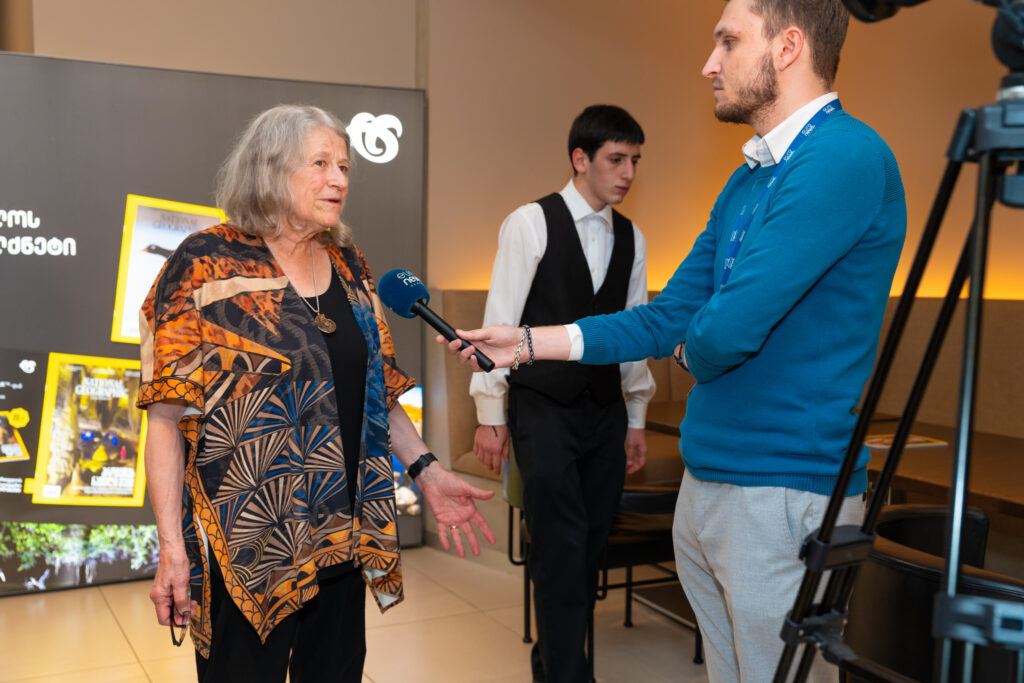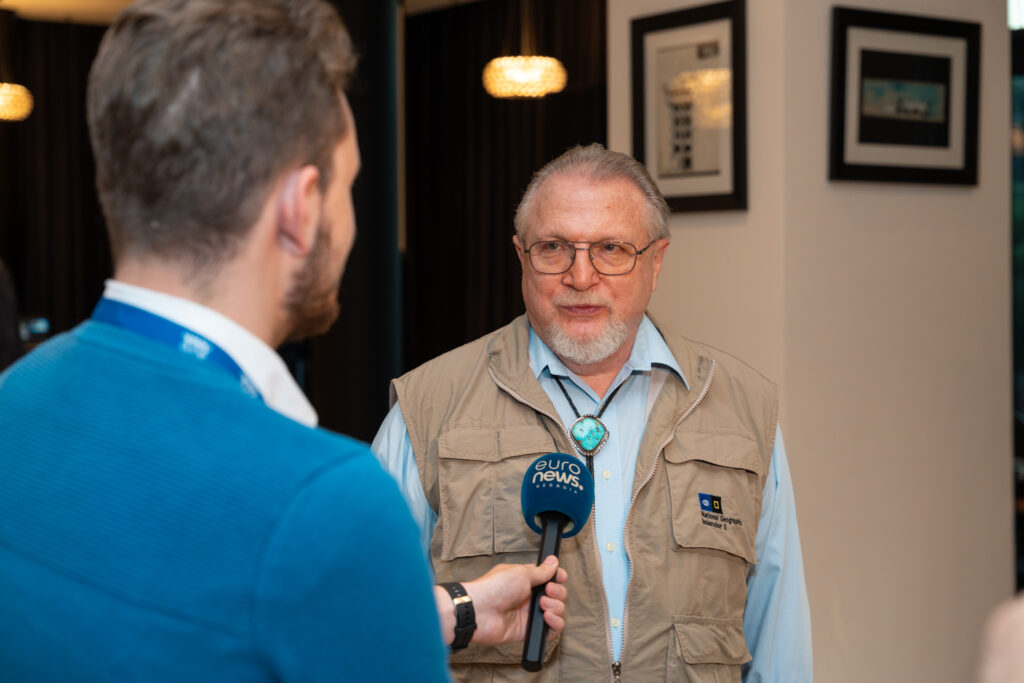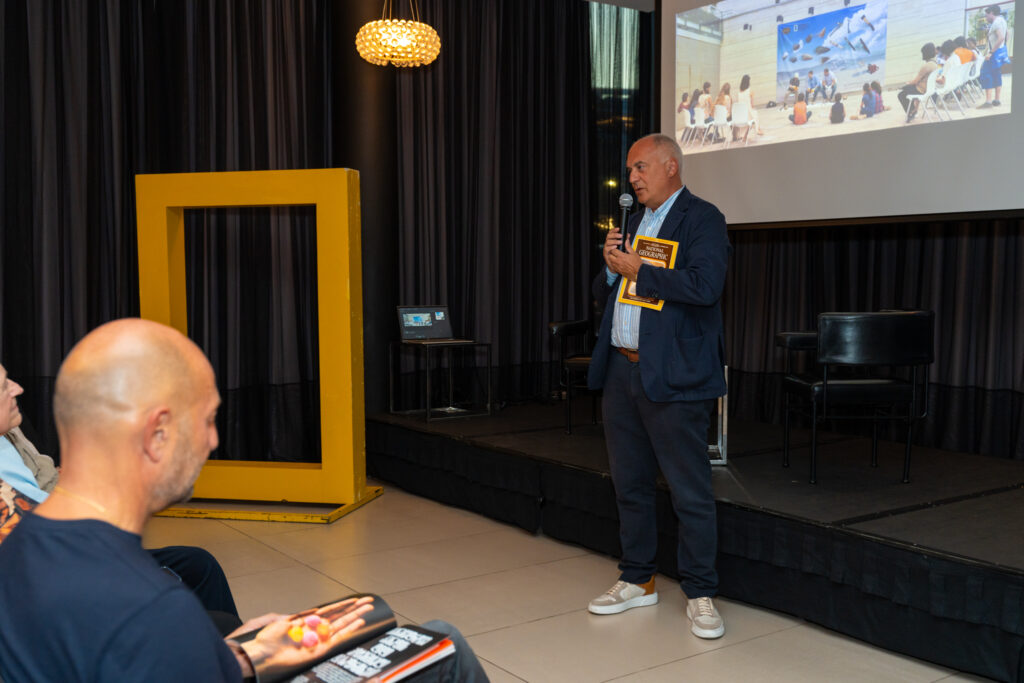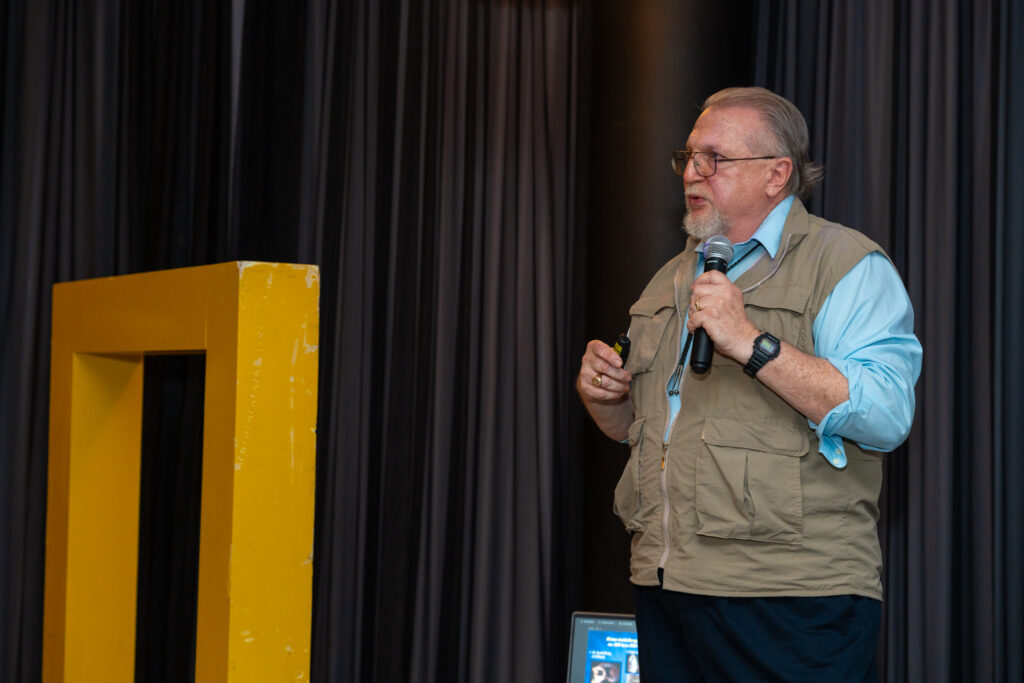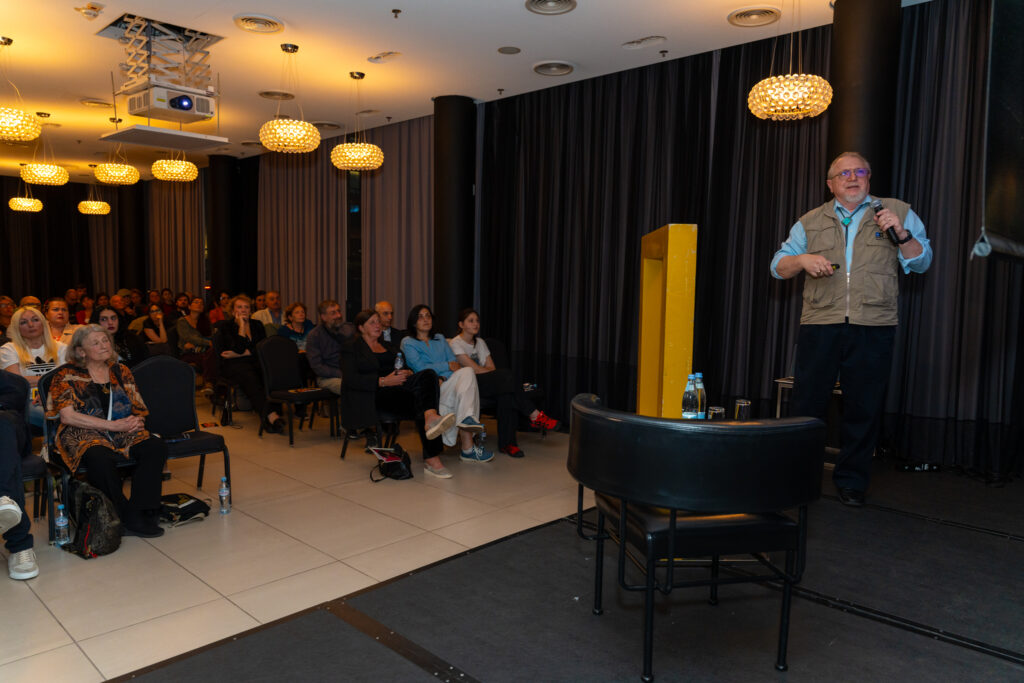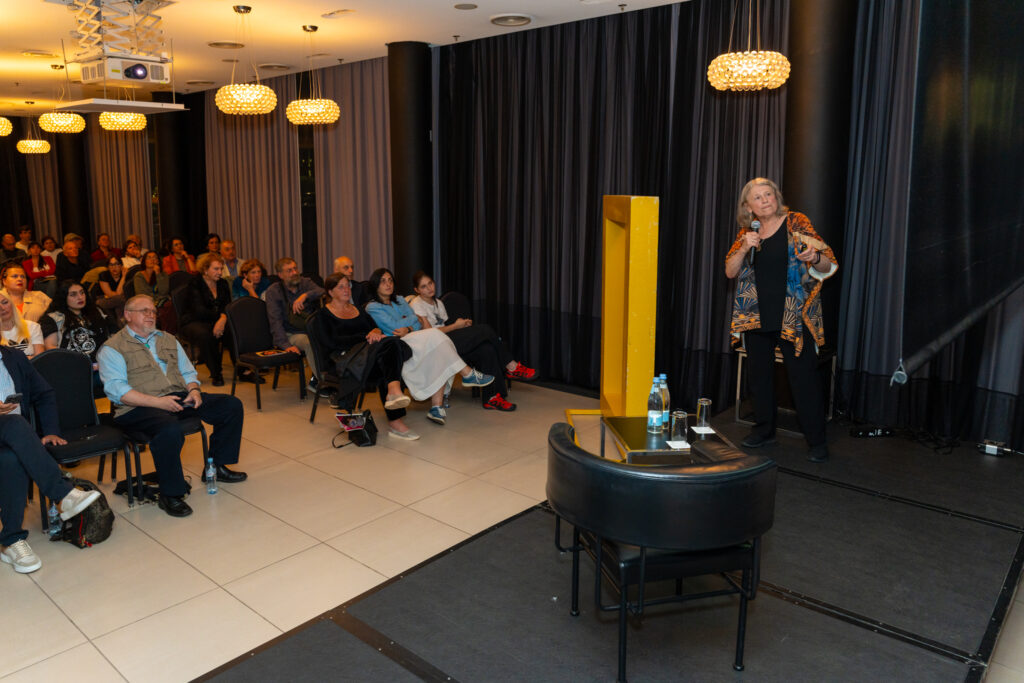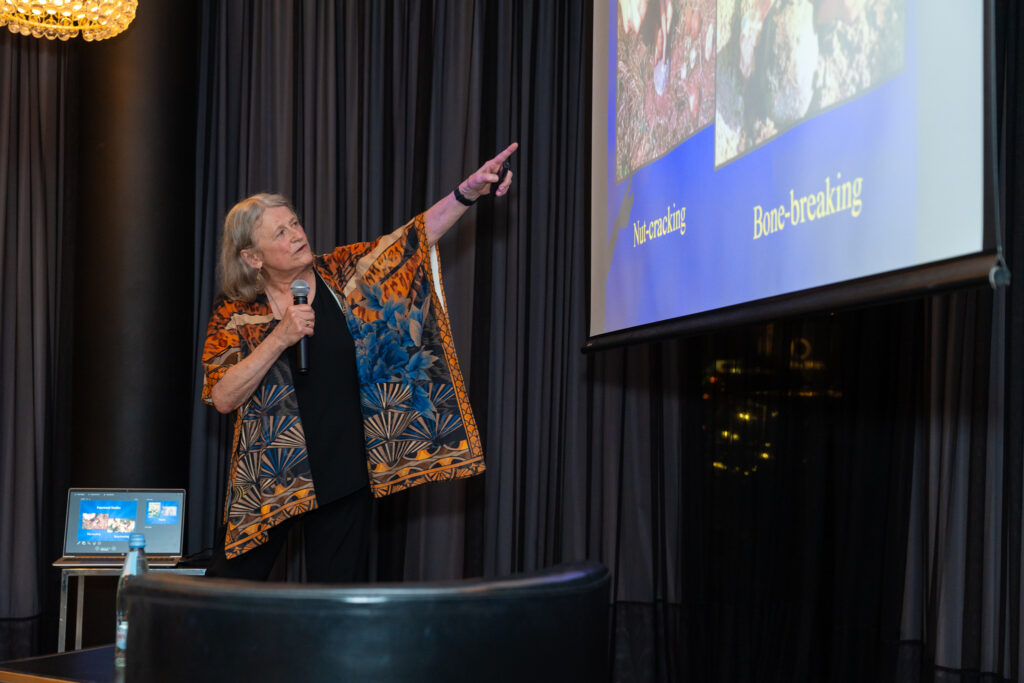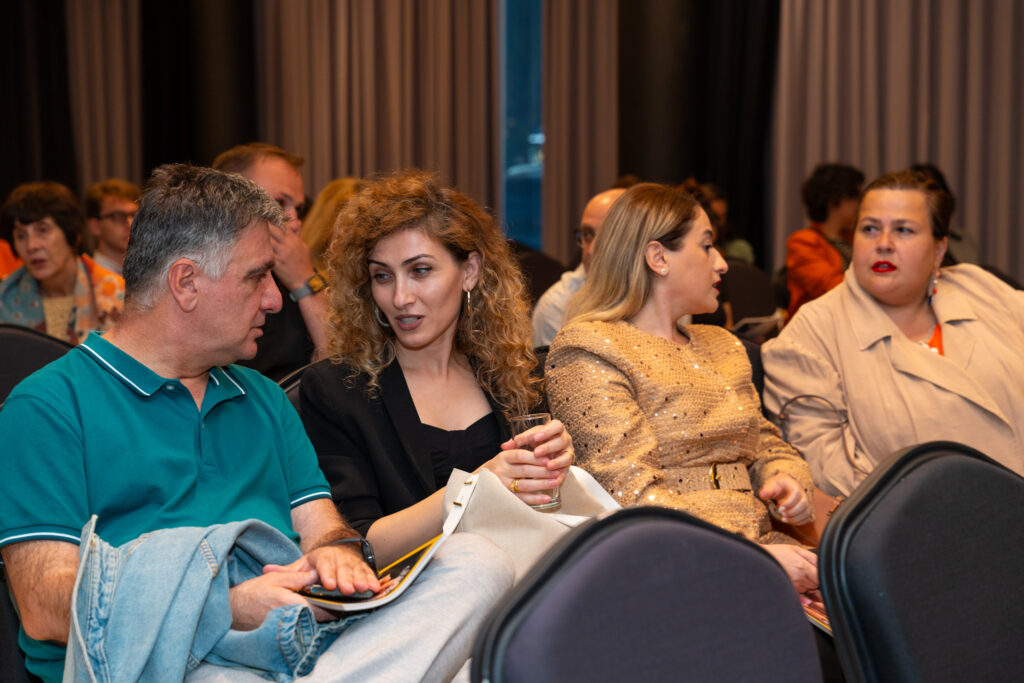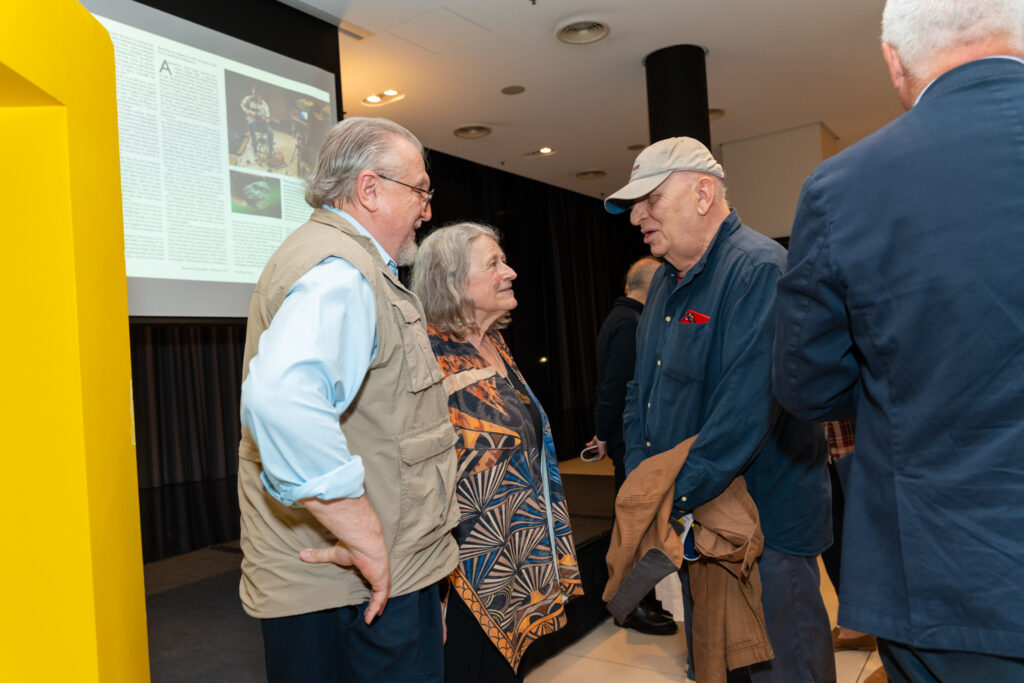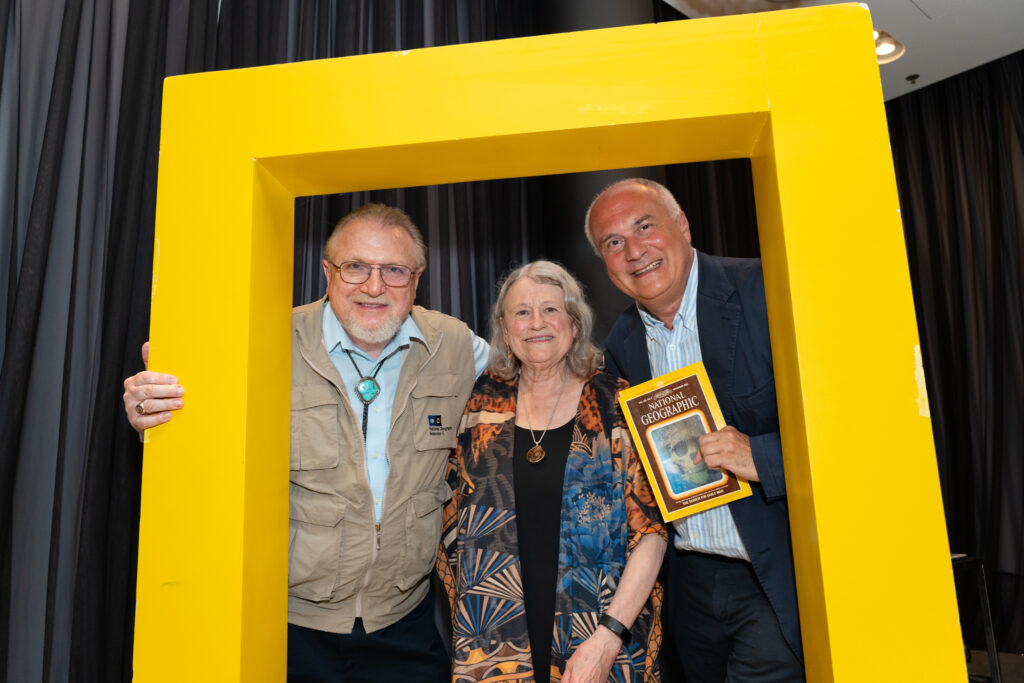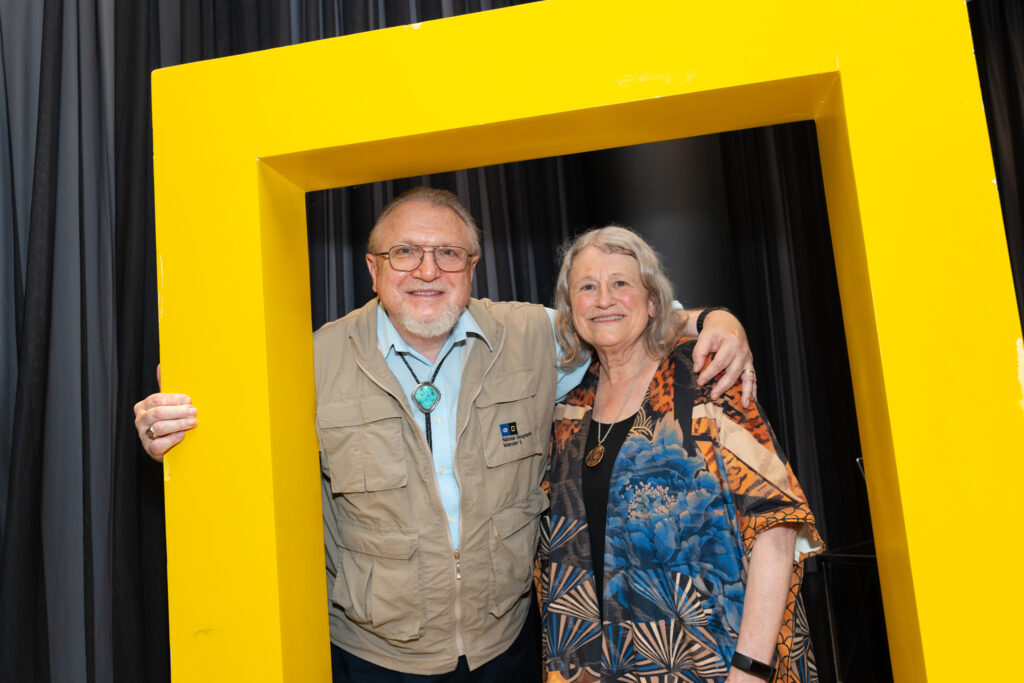On September 17, Academia Europaea Tbilisi Hub, the Georgian National Museum, and National Geographic Magazine – Georgia hosted a public lecture by Professors Emeriti of Anthropology and Cognitive Science at Indiana University, Kathy Schick and Nicholas Toth: “What stone tools can tell us about human evolution: Five decades of research.”
Professors Schick and Toth have a long-standing friendship and collaboration with Georgia. They have contributed to numerous important studies of the finds from the Dmanisi archaeological site, frequently visit Georgia, and actively support the training of a new generation of archaeologists. Within their educational projects, they demonstrate the full process of stone tool production (flintknapping), preparing replicas of Stone Age tools together with participants.
Opening the event, Professor David Lordkipanidze, Academic Director of Academia Europaea Tbilisi Hub and General Director of the Georgian National Museum, noted:
“Today we have the opportunity to listen to two legendary scientists, Kathy Schick and Nick Toth. They have played a major role in the study of human evolution and have been part of many important discoveries. In our field, there are several very special issues of National Geographic. One of them is the issue of November 1985, where reader meets Kathy and Nick among the main protagonists.”
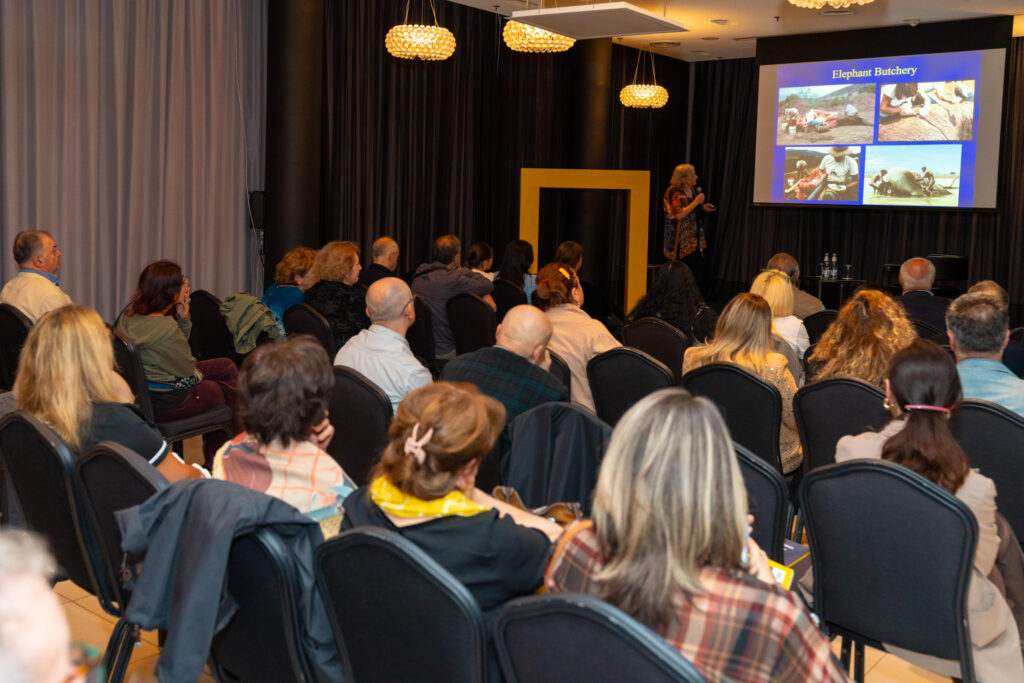
During the lecture Professor Nicholas Toth said: “As a child, my inspiration was National Geographic magazine, which shaped my career. Our ancestors, the earliest hominids, did not have writing, but they left us a wealth of evidence: stone tools, which Kathy and I have been studying for 50 years. What we have uncovered in Dmanisi is extraordinary. Everything necessary for the study of prehistory is there.”
During the lecture, the professors presented the results of five decades of multidisciplinary research into the Early Stone Age, aiming to understand the role of stone tools and technology in human evolution over the past several million years.
Professor Kathy Schick emphasized: “Our ancestors followed a path that no other species on Earth has taken. During 50 years of research, we have been reconstructing how they adapted to new environments, how they created and used new tools. The evidence we have studied spans Africa, Europe, and Asia. Human evolution is fascinating because it tells us where we come from.”
Their scientific contributions cover a wide spectrum: the study of archaeological material, experimental reconstructions of tool-making techniques, teaching modern apes how to make and use stone tools, ethnoarchaeological studies of some of the last human tool-makers, brain imaging to explore the cognitive complexity of toolmaking, and geoarchaeological investigations of ancient lake basins to reconstruct the palaeoclimate and environment that accompanied human evolution.
At the end of the lecture, Professors Schick and Toth surprised the audience with a song. The music was composed by Professor Nicholas Toth, the lyrics were written by Professor Kathy Schick, and the song is performed by Grammy Award-winning singer Carrie Newcomer — dedicated to none other than Dmanisi.
—
Kathy Schick and Nicholas Toth are palaeoanthropologists, Professors Emeriti of Anthropology and Cognitive Science at Indiana University, Bloomington, and Co-Founders and Co-Directors of the independent Stone Age Institute in Indiana, dedicated to the archaeology of human origins in Africa and Eurasia (www.stoneageinstitute.org).
Schick did her early graduate work at Kent State University, and Toth did his at Oxford University. Married since 1977, they both received doctorates in Anthropology from the University of California, Berkeley. In 2019 they received honorary doctorates from Tbilisi State University for their contributions to Georgian science. They are Elected Fellows of the American Association for the Advancement of Science (AAAS).
—
This public lecture also marked the opening of the autumn season of monthly meetings with readers organized by National Geographic Georgia and Silknet, hosted at the Radisson Hotel by Silk Hospitality.
